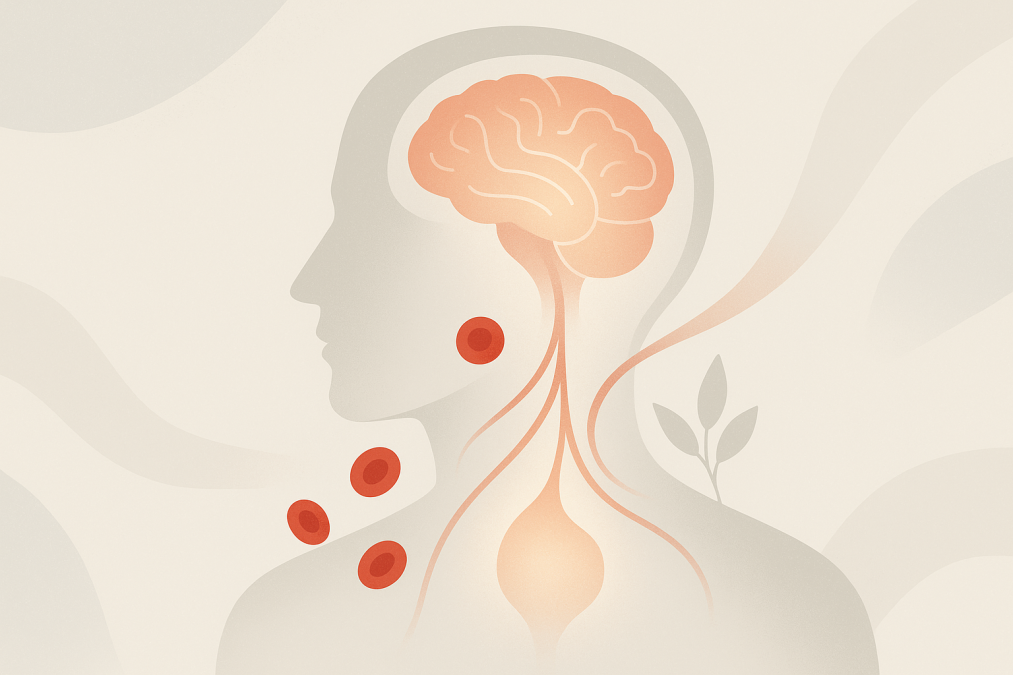Iron plays a vital role in keeping the body energised and the brain functioning clearly. When levels drop too low, the effects can extend well beyond tiredness. Many people are surprised to learn that iron deficiency can also influence concentration, memory, and mood. Because the brain relies heavily on oxygen and energy, even a mild deficiency can affect how well we think, learn, and process information.
In Australia, iron deficiency remains one of the most common nutritional deficiencies, affecting people of all ages and backgrounds. In Victoria, access to treatments such as IV iron treatment in Melbourne has become an important part of managing low iron levels effectively, particularly for individuals who do not respond well to oral supplements or experience side effects from them. These therapies are designed to restore iron stores more rapidly, supporting improved focus, energy, and overall cognitive health. Recognising how iron status influences mental clarity can help individuals seek appropriate care before symptoms begin to interfere with daily life.
The Connection Between Iron and Brain Function
Iron supports several key processes that allow the brain to perform efficiently. It helps carry oxygen through the blood to every cell, including the neurons responsible for thought, memory, and communication. It also supports the production of neurotransmitters such as dopamine and serotonin, which influence mood, motivation, and alertness.
When iron levels are adequate, these systems work together smoothly. But when stores become depleted, oxygen transport slows, and the brain’s energy supply can become limited. Over time, this may lead to slower mental responses, difficulty concentrating, and a general feeling of mental fatigue.
Why the Brain Is Sensitive to Low Iron Levels
The brain uses a large portion of the body’s oxygen and energy resources, making it particularly sensitive to low iron. If the blood cannot deliver enough oxygen to brain tissue, the cells begin to function less efficiently. Research has shown that iron deficiency can impair memory, attention span, and the ability to process information quickly.
This is why people with low iron often describe feeling “foggy” or less mentally sharp. For some, tasks that once felt simple such as reading, following a conversation, or staying focused at work can suddenly become more challenging. These symptoms can gradually improve as iron levels are restored through appropriate treatment.
Cognitive and Emotional Changes Linked to Iron Deficiency
Iron deficiency affects more than physical energy. Many people report changes in concentration, alertness, and even emotional balance. Common cognitive and behavioural signs include:
- Difficulty concentrating on tasks
- Forgetfulness or reduced short-term memory
- Slower decision-making
- Reduced mental stamina or productivity
Emotional effects can also occur. Some people experience low motivation, irritability, or feelings of apathy. These changes often reflect the brain’s struggle to maintain adequate function with limited oxygen and energy. Importantly, symptoms vary widely and may overlap with other conditions, which is why professional assessment is always recommended.
Iron Deficiency Across Life Stages
Iron influences brain health at every age. In children and teenagers, low levels can interfere with learning, memory formation, and academic performance. Because the brain is still developing, sufficient iron is essential for attention, problem-solving, and growth.
In adults, iron deficiency may reduce concentration and work performance. It can also contribute to feelings of exhaustion that affect motivation and mental resilience. Many busy professionals attribute their fatigue to stress or a lack of sleep, when low iron levels may also be a contributing factor.
Older adults face unique challenges as absorption efficiency naturally decreases with age. Maintaining healthy iron levels helps preserve energy, mental sharpness, and independence. Regular check-ups are important to ensure that deficiency is identified early and addressed appropriately.
Contributing Factors to Iron Deficiency
There are several reasons why someone may develop iron deficiency. In Australia, the most common causes include low dietary intake, blood loss, and poor absorption.
- Dietary factors: People who eat limited red meat or follow vegetarian or vegan diets may not consume enough easily absorbed iron.
- Blood loss: Menstrual bleeding, digestive issues, or frequent blood donation can gradually reduce iron stores.
- Absorption issues: Conditions affecting the gut, such as coeliac disease or chronic inflammation, can interfere with how the body absorbs nutrients.
- Increased needs: Growth, pregnancy, and certain medical conditions can all raise iron requirements.
Identifying the cause is a key part of treatment. Addressing only the symptoms without finding the reason for low levels can lead to recurrence later on.
Diagnosis and Medical Assessment
A healthcare professional can determine iron status through specific blood tests, typically measuring haemoglobin, ferritin, and transferrin saturation. These results give an accurate picture of both circulating iron and stored reserves.
It’s important not to self-diagnose or start supplements without testing. Too much iron can also be harmful, so medical guidance ensures safe and effective treatment. A doctor will review blood results alongside symptoms, dietary habits, and medical history before recommending the next steps.
Evidence-Based Treatment and Management Options
Once iron deficiency is confirmed, treatment aims to restore levels safely and gradually. The right approach depends on the cause and severity of the deficiency.
- Dietary modification: Including iron-rich foods such as lean red meat, poultry, fish, legumes, and dark leafy vegetables can help. Combining these with vitamin C-rich foods improves absorption.
- Oral supplements: Many people benefit from iron tablets or liquid supplements prescribed under medical supervision. These are usually taken for several months to rebuild iron stores.
- Iron infusions: In cases where absorption is poor or deficiency is severe, a doctor may recommend an iron infusion. This procedure is performed in a clinical setting to restore levels more rapidly and is monitored carefully for safety.
As iron levels normalise, improvements in focus, alertness, and mental energy often follow, although recovery time varies for each person.
Integrative and Functional Medicine Perspectives
Functional and integrative medicine approaches look beyond blood results to understand what may be driving iron deficiency. For example, gut health, inflammation, or hormonal imbalances can influence how iron is absorbed and used in the body.
An integrative general practitioner in Melbourne may take a broader view, combining standard medical treatment with nutritional and lifestyle guidance. This approach helps support long-term improvement by addressing both the deficiency itself and the factors that contributed to it. Integrative care works alongside conventional medicine to promote sustainable recovery and overall well-being.
When to Seek Professional Care
If you experience persistent fatigue, poor concentration, or light-headedness that doesn’t improve with rest, it may be time to see your GP. Early diagnosis and treatment can prevent more serious complications and help you feel clearer and more energised.
Iron deficiency is common and manageable, but it requires medical assessment to confirm. Working with a qualified practitioner ensures that treatment is tailored to your needs and monitored for safety. Whether care is provided through a general practice or an integrative medical clinic, the goal remains the same to restore balance and support healthy brain and body function.
FAQs
Q1: Can low iron levels affect mental clarity and focus?
Yes. Iron is essential for oxygen delivery to the brain. Low levels can limit energy production, which may cause difficulty concentrating and mental fatigue.
Q2: How is iron deficiency diagnosed?
Diagnosis is based on blood tests that measure haemoglobin and ferritin levels. These tests must be interpreted by a qualified healthcare professional.
Q3: How long does it take to feel better after starting treatment?
Improvement depends on the severity of deficiency and the chosen treatment method. Many people notice a gradual return of focus and energy over several weeks, while full recovery may take longer.
Q4: Are iron infusions suitable for everyone?
No. Iron infusions are typically recommended only when oral supplements are not effective or not tolerated. A doctor will determine suitability after reviewing test results and overall health.
Disclaimer
This article is for informational purposes only and does not replace professional medical advice, diagnosis, or treatment. Always consult a qualified healthcare professional before starting or changing any treatment for iron deficiency.



